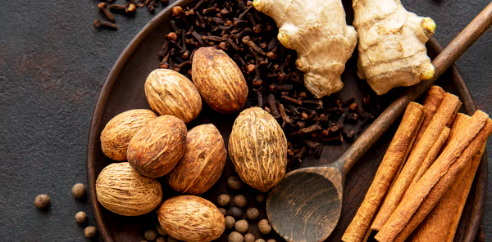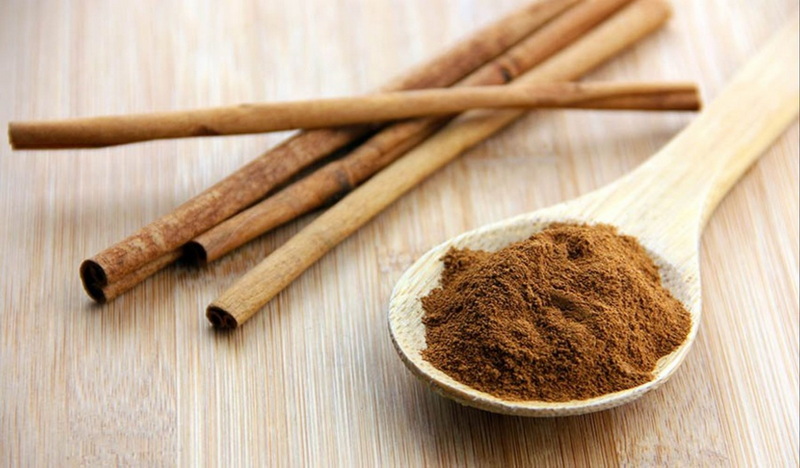Content Menu
● Introduction to Cinnamon Bark Extract
>> Health Benefits of Cinnamon Bark Extract
● Production Costs and Market Trends
>> Market Size and Growth
● Comparison with Other Ingredients
>> Cinnamon Powder vs. Cinnamon Bark Extract
>> Cassia vs. Ceylon Cinnamon
● Cost-Effectiveness Analysis
● Applications and Market Reach
● Sustainability and Environmental Impact
● Conclusion
● FAQs
>> 1. What are the primary health benefits of cinnamon bark extract?
>> 2. How does the cost of cinnamon bark extract compare to cinnamon powder?
>> 3. What are the differences between Cassia and Ceylon cinnamon?
>> 4. What are the common applications of cinnamon bark extract?
>> 5. How does the market size of cinnamon bark extract compare to other spice extracts?
● Citations:
Cinnamon bark extract has gained significant attention in recent years due to its numerous health benefits and versatile applications in the food, beverage, and supplement industries. This article will delve into the cost-effectiveness of cinnamon bark extract compared to other ingredients, exploring its production costs, market trends, and applications.

Introduction to Cinnamon Bark Extract
Cinnamon bark extract is derived from the bark of cinnamon trees, primarily Cinnamomum verum (Ceylon cinnamon) and Cinnamomum cassia (Cassia cinnamon). It is rich in bioactive compounds such as cinnamaldehyde, which is known for its antioxidant, anti-inflammatory, and antimicrobial properties.
Health Benefits of Cinnamon Bark Extract
1. Antioxidant Properties: Cinnamon contains polyphenols that provide protective antioxidant effects, helping to reduce oxidative stress and inflammation.
2. Anti-inflammatory Effects: The antioxidant compounds in cinnamon contribute to its anti-inflammatory properties, which may help mitigate age-related diseases.
3. Blood Sugar Control: Cinnamon is believed to aid in managing blood sugar levels by enhancing insulin sensitivity.
4. Digestive Health: It can boost digestion and reduce symptoms like bloating and indigestion.
Production Costs and Market Trends
The production of cinnamon bark extract involves a resource-intensive process, contributing to higher production costs compared to other spices or ingredients. However, its concentrated form allows for cost-effectiveness in the long run due to lower usage rates.
Market Size and Growth
The cinnamon bark extract powder market was valued at USD 1.2 billion in 2024 and is projected to reach USD 2.5 billion by 2033, exhibiting a CAGR of 8.9% from 2026 to 2033. This growth is driven by increasing demand for natural health and wellness products. The market expansion is also influenced by the rising awareness of cinnamon's potential health benefits and its integration into various dietary supplements and functional foods.

Comparison with Other Ingredients
Cinnamon Powder vs. Cinnamon Bark Extract
- Cost: Cinnamon powder is generally more affordable upfront, while cinnamon bark extract is more cost-effective in the long run due to its concentrated nature.
- Flavor Intensity: Cinnamon bark extract provides a stronger flavor with smaller quantities.
- Applications: Cinnamon powder is ideal for baked goods and savory dishes, while cinnamon bark extract is better suited for beverages and supplements.
Cassia vs. Ceylon Cinnamon
- Coumarin Content: Cassia contains higher levels of coumarin, which may have liver toxicity at high doses, whereas Ceylon cinnamon has lower coumarin levels.
- Flavor Profile: Cassia is strong and pungent, while Ceylon is mild and sweet.
- Cost: Cassia is more affordable and widely available, while Ceylon is premium.
Cost-Effectiveness Analysis
Cinnamon bark extract offers cost-effectiveness in applications where a smooth texture and concentrated flavor are required. Its standardized active compounds ensure consistent potency, making it ideal for dietary supplements and functional foods. In the beverage industry, cinnamon bark extract is preferred for its ability to provide a strong cinnamon flavor without the need for large quantities of cinnamon powder.
Applications and Market Reach
Cinnamon bark extract is widely used in:
1. Beverages: Adds a strong cinnamon flavor to lattes and teas.
2. Supplements: Used for blood sugar support and metabolic health.
3. Cosmetics: Incorporated into skincare products for its antioxidant properties.
Sustainability and Environmental Impact
The sustainability of cinnamon bark extract production is a growing concern. Efforts to ensure sustainable harvesting practices and reduce environmental impact are crucial for maintaining market credibility and consumer trust. Sustainable production not only supports biodiversity but also ensures the long-term availability of cinnamon resources.
Conclusion
Cinnamon bark extract is a cost-effective ingredient in the long term, especially in applications requiring a smooth texture and concentrated flavor. Its health benefits and versatility make it a valuable addition to various industries. However, its higher upfront cost compared to other forms of cinnamon may deter some consumers. As the market continues to grow, focusing on sustainable production practices will be essential for maintaining consumer trust and ensuring the long-term viability of the industry.

FAQs
1. What are the primary health benefits of cinnamon bark extract?
Cinnamon bark extract offers several health benefits, including antioxidant properties, anti-inflammatory effects, and support for blood sugar control. It also aids in digestion and may help reduce inflammation.
2. How does the cost of cinnamon bark extract compare to cinnamon powder?
Cinnamon bark extract is typically more expensive upfront but can be cost-effective in the long run due to its concentrated nature and lower usage rates. Cinnamon powder is generally more affordable upfront but may require larger quantities for the same effect.
3. What are the differences between Cassia and Ceylon cinnamon?
Cassia cinnamon is stronger and more affordable, with higher coumarin levels, while Ceylon cinnamon is milder, more expensive, and has lower coumarin levels. Ceylon is preferred for health-focused products due to its lower coumarin content.
4. What are the common applications of cinnamon bark extract?
Cinnamon bark extract is commonly used in beverages, dietary supplements, and cosmetics. It is ideal for applications requiring a smooth texture and concentrated flavor.
5. How does the market size of cinnamon bark extract compare to other spice extracts?
The cinnamon bark extract market is growing rapidly, driven by its applications in health and wellness products. It is projected to reach USD 2.5 billion by 2033, indicating significant demand compared to other spice extracts.
Citations:
[1] https://www.verifiedmarketreports.com/product/cinnamon-bark-extract-powder-market/
[2] https://www.bbcgoodfood.com/health/nutrition/health-benefits-cinnamon
[3] https://chicagoacademicpress.com/Images/new%20perspectives/009NewPerspectives.pdf
[4] https://www.botaniex.com/is-cinnamon-bark-extract-better-than-cinnamon-powder-for-cooking.html
[5] https://www.rxlist.com/supplements/cinnamon_bark.htm
[6] https://huggingface.co/openbmb/cpm-bee-1b/commit/bd72a61dd7a59086ed7456f1dfcaa995c8ec58a3.diff
[7] https://greenjeeva.ca/cinnamon-bark-extract-vs-cassia-vs-ceylon/
[8] https://www.webmd.com/diet/supplement-guide-cinnamon






























